Oxford Diecast NTRAIL010 Mobile Trailer AA
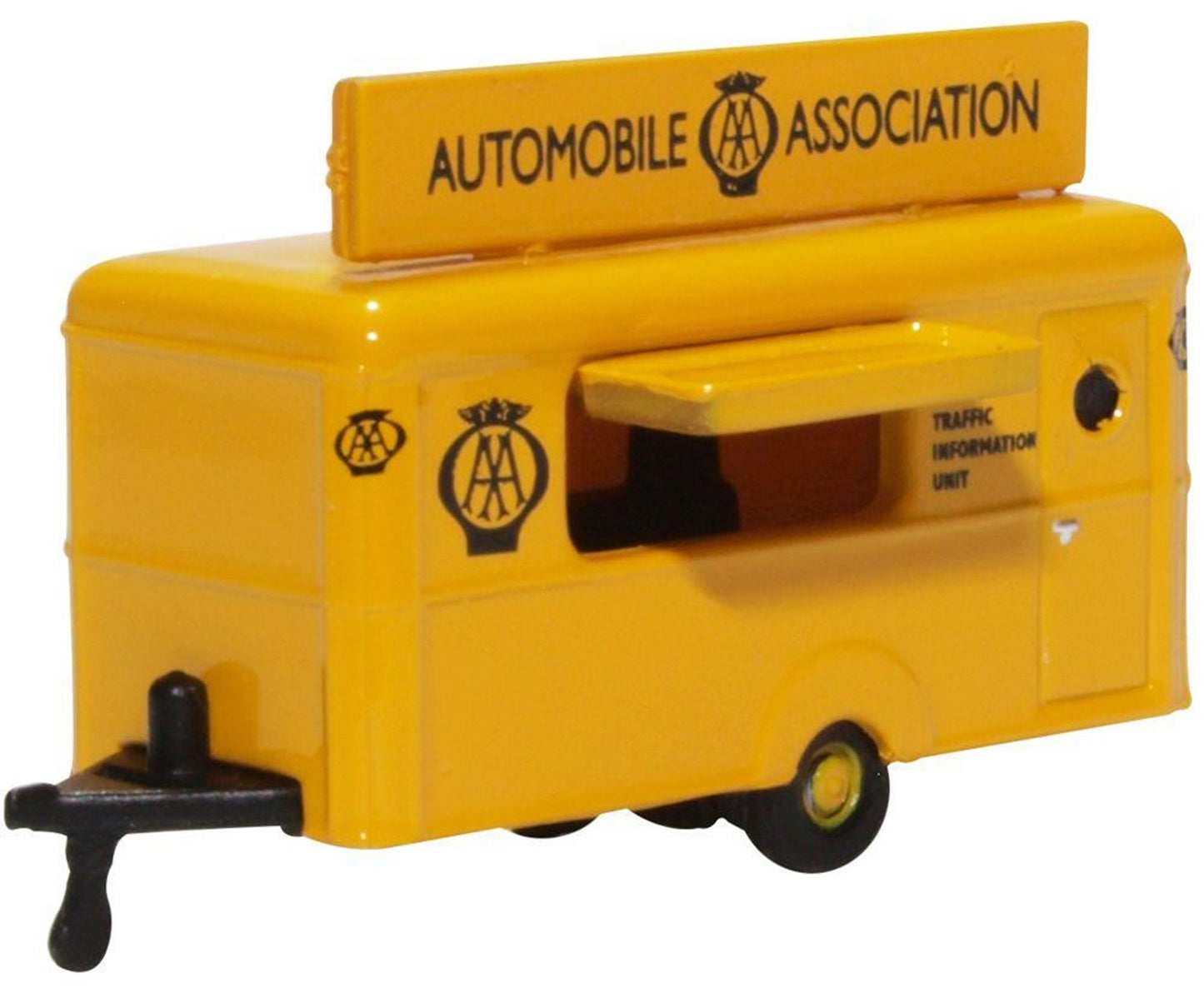
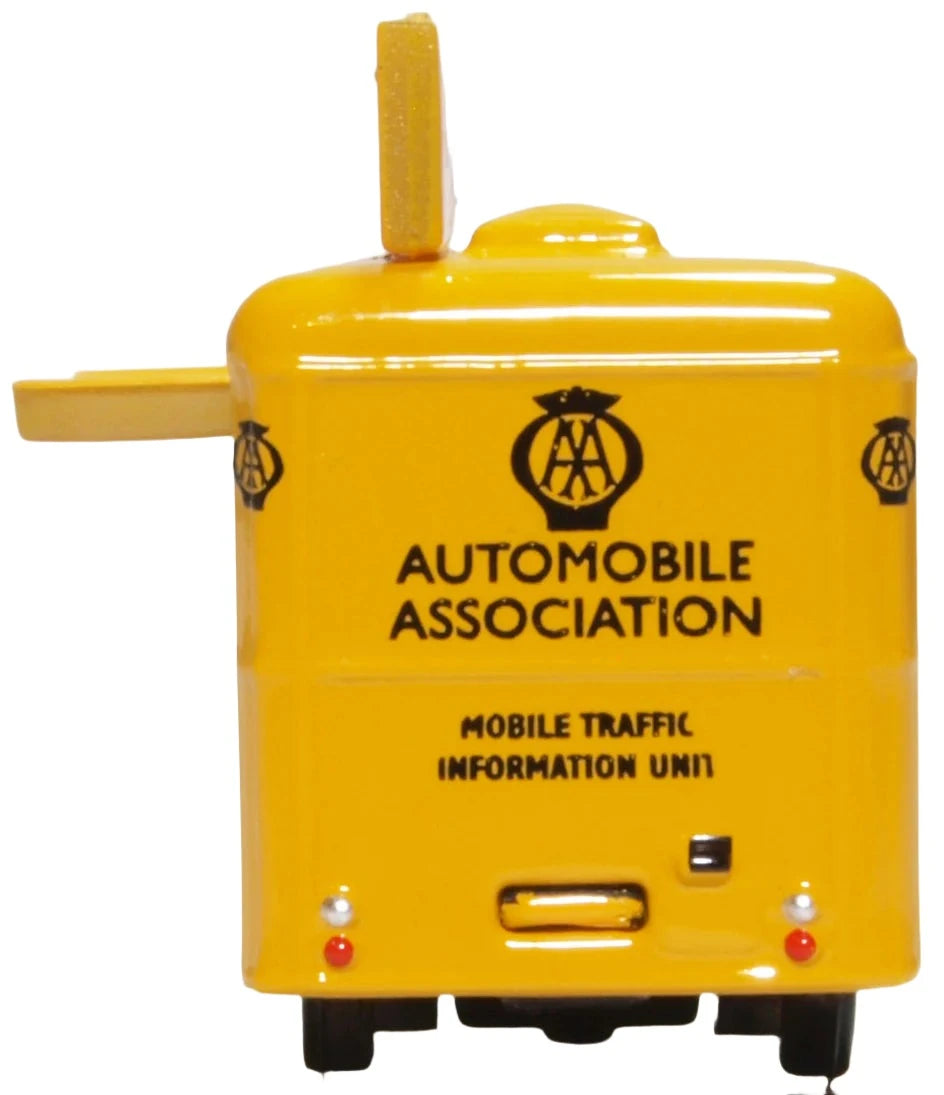
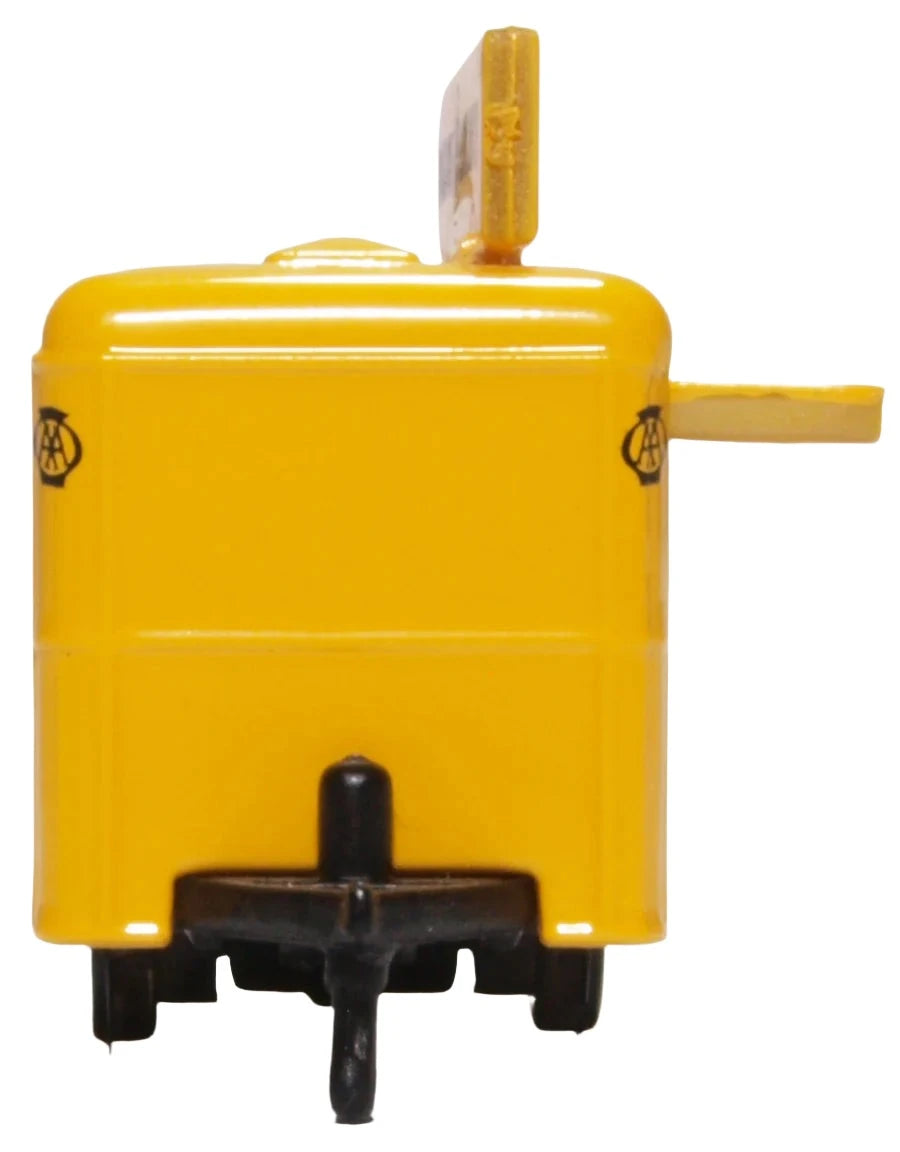
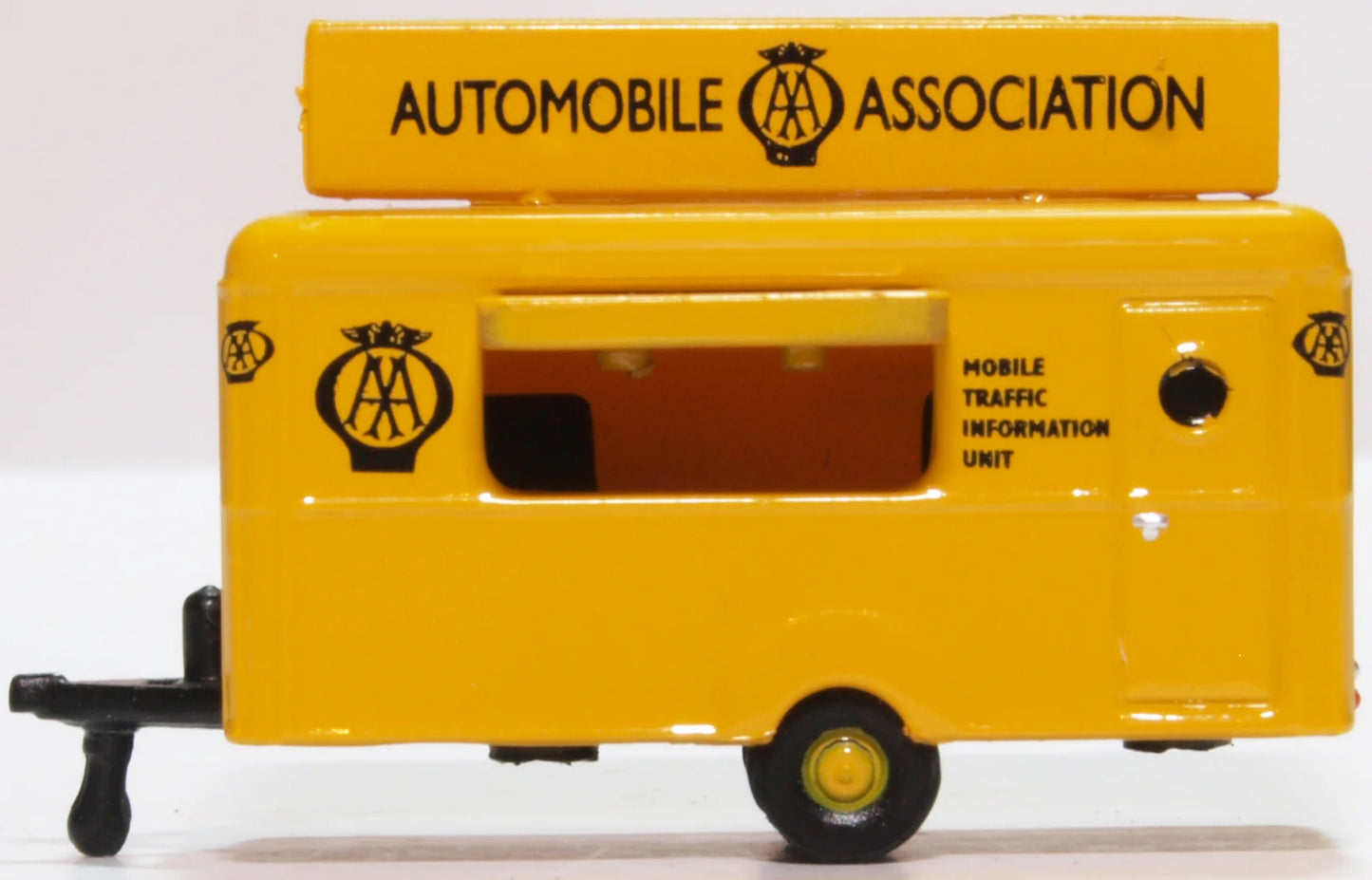
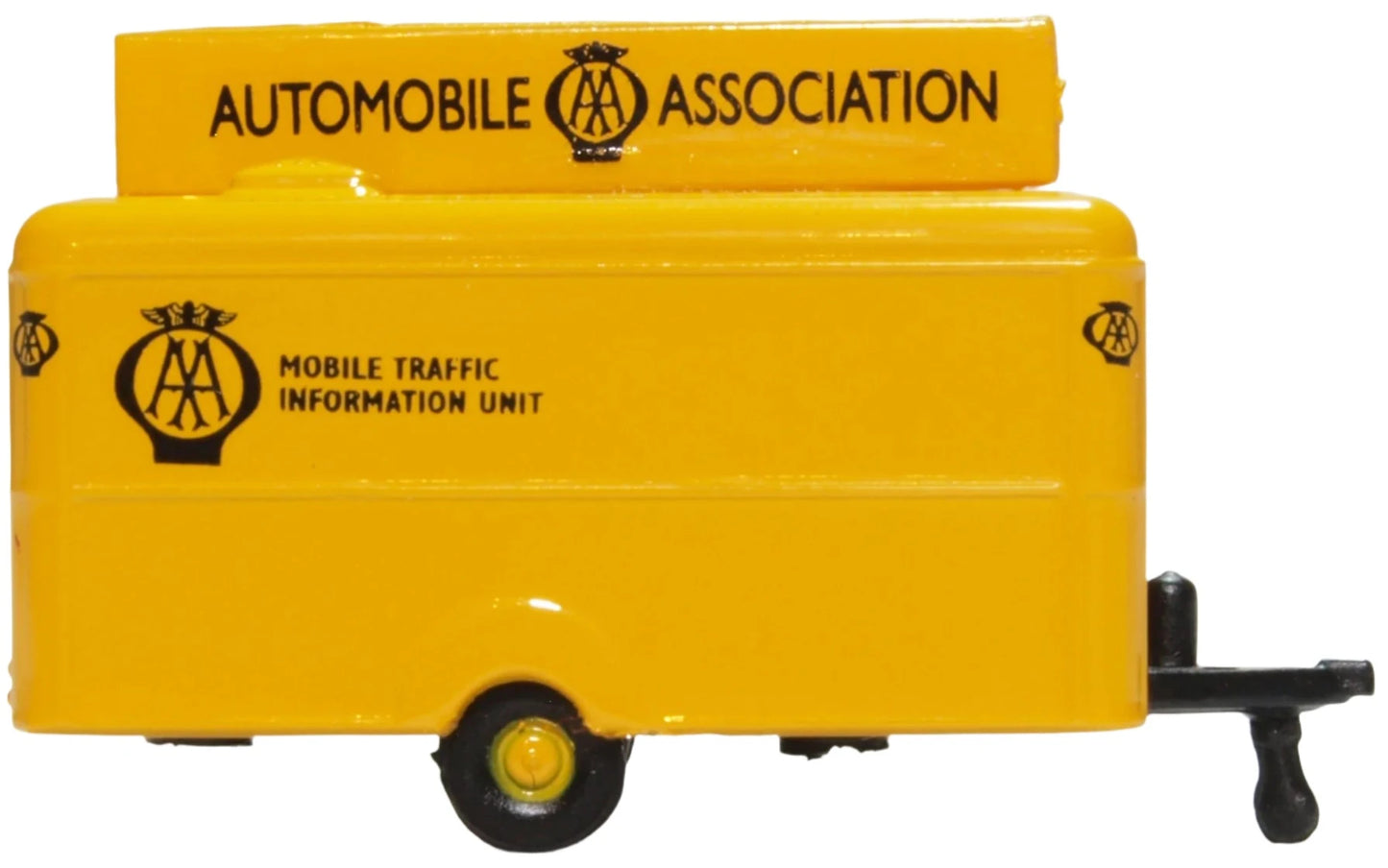
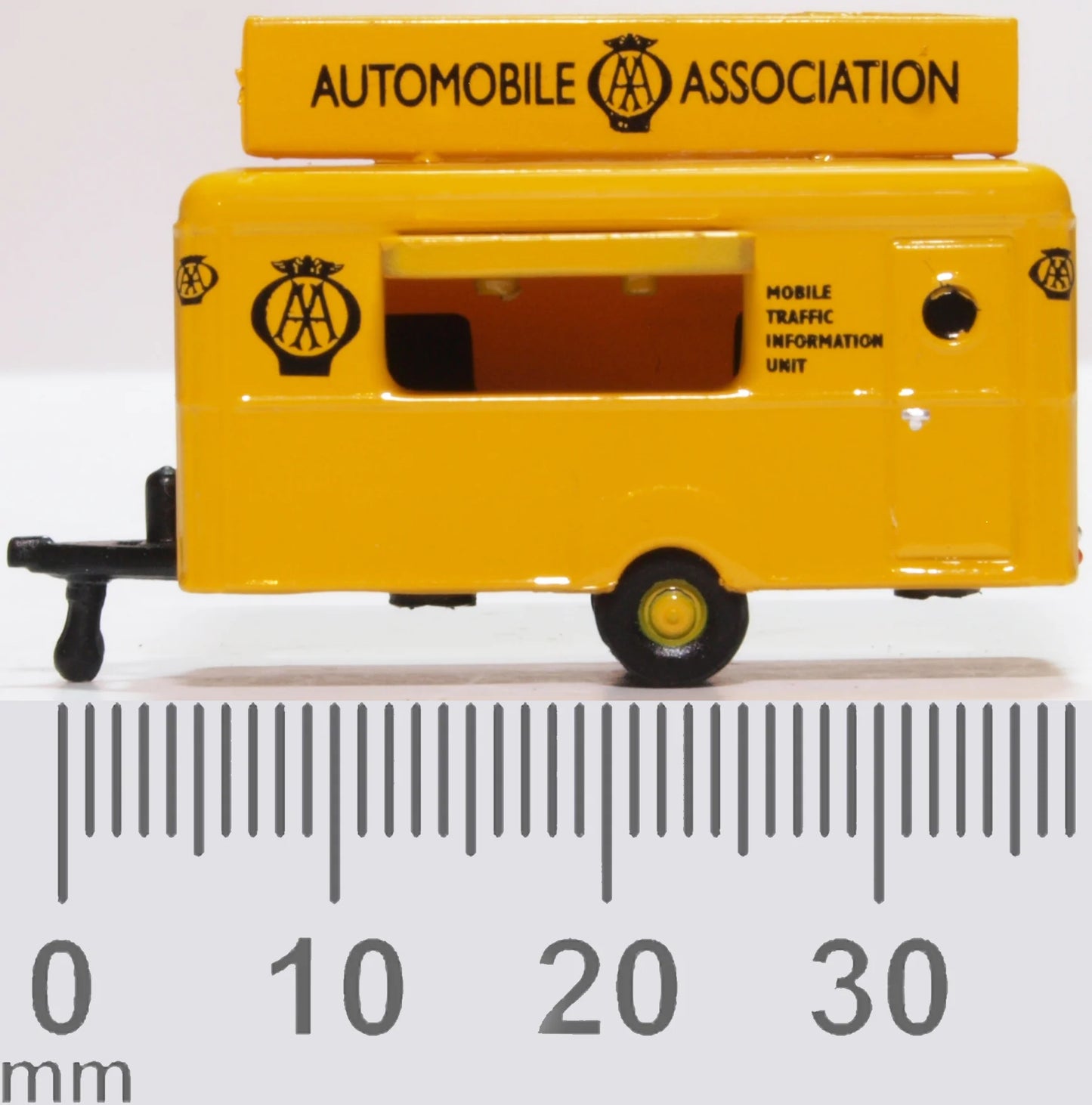
Product Details
| SKU | OXD-NTRAIL010 |
|---|---|
| Vendor | Oxford Diecast |
| Categories | Best selling products Buildings and Vehicles New products Other Other Hobby Oxford Diecast Trackside Models |
| Share | |
| Features |
Product Description
The N Scale mobile trailer decorated in the livery of the Automobile Association, appearing in their signature bright yellow and black.
Here the mobile trailer is promoting its purpose as a mobile traffic information unit on the sides and across the rear and also features a slide-effect hatch through which its officers address enquiries, particularly to monitor the traffic conditions on the roads - anything from traffic jams to accidents to adverse weather conditions, while to the right is a non-opening porthole windowed door. The wheels echo the bright yellow of the body while the chassis and jockey wheel are moulded in black. The interior is moulded in black. The classic AA badge is printed on the trailer sides and rear in black, alongside a stretched stylised version of the badge running down the rear edges of the trailer. Finally the eye-catching roofboard stretches the length of the trailer, also in AA colours and easily spotted by those in need.
The AA badge originated as far back as 1906 when it was used as identification by the AA cycle outriders of the age. Motorists were also issued with an annual metal AA membership badge to fix to their vehicle and in those days it also carried the expiry date of their membership. You also received a salute from the AA patrolmen stationed by the side of the road in their jodhpurs and knee high shiny leather boots. In the modern age, your membership number and expiry date is detailed on your membership card and there are far too many of us to expect a salute, although the AA man is always most courteous, smart in a more appropriate set of overalls, still ready to sort out our motoring problems!
The first winged badges appeared in 1911 following the amalgamation of the Motor Union with the AA. A further streamlining/straightening of the wings occurred in the 1930s, after which very little changed for the next 50 years apart from the metal which varied between brass, nickel and chrome, depending on the era. Some rare badges are quite collectable these days, particularly those issued briefly during the two world wars.





